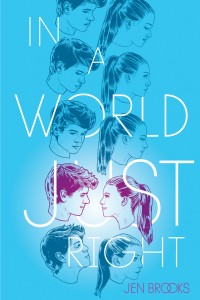September, 2013
Thoughts after reading Insurgent
 A small storm of thoughts have converged on me today as the result of three occurrences: 1) Yesterday I finished reading Insurgent, 2) I am disheartened by some of the response to the choosing of Miss America, 3) I am ever mindful of the place YA literature has/should have in the high school classroom.
A small storm of thoughts have converged on me today as the result of three occurrences: 1) Yesterday I finished reading Insurgent, 2) I am disheartened by some of the response to the choosing of Miss America, 3) I am ever mindful of the place YA literature has/should have in the high school classroom.
Whenever I read a book, I think about what students could gain from reading it. In this frame of mind, I noted the following passages from Veronica Roths Insurgent:
People, I have discovered, are layers and layers of secrets. You believe you know them, that you understand them, but their motives are always hidden from you, buried in their own hearts. You will never know them, but sometimes you decide to trust them (510).
Color fills her cheeks, and I think it again: that Johanna Reyes might still be beautiful. Except now I think that she isnt just beautiful in spite of the scar, shes somehow beautiful with it, like Lynn with her buzzed hair, like Tobias with the memories of his fathers cruelty that he wears like armor, like my mother in her plain gray clothing (517).
If this book were read in my classroom, I would ask students to explain what they thought each passage meant in the context of the book. Then I would ask how they could apply this meaning to what they know of life.
How valuable it would be for young people to reflect upon their knowledge of othersfriends, family, acquaintances, strangersand on what they can or cannot truly know about them. How valuable to reflect upon what they choose to share with others and what others can never really know of them. Or upon how they can trust people whose motives may or may not be transparent to them. Or upon beauty and whether it might possibly stem from what people become because they have suffered.
Despite the usefulness I see of including such a book and such a discussion in a high school classroom, I have personally witnessed some educators dismissal of contemporary YA works as worthless, simple, or too focused on kissing, popularity, and vampires. Can such an attitude be espoused by a person who has read a book like Insurgent and discussed with students the passages quoted above? I have a hard time believing so.
The truth is that high school students possess many resources that will make meaning of canonical textsfor them. The teacher will do it in the classroom. The internet will do it outside the classroom. With so many answers out there, the sad truth is that many students choose not to read the challenging, original text at all. If they dont read the text, they cant make their own meaning.
One of the primary values of YA literature, to me, besides its presentation as less daunting than a canonical tome, is the use of a young adult protagonists perspective to make it easier for the young reader to make their own meaning.
When I read comments about in Indian-American becoming Miss America that call her a Muslim terrorist, or bemoan the fact that she was chosen just after the anniversary of 9/11, or that another, whiter candidate is somehow more American because she can shoot a gun and loves her country, I think of the chance that might have been missed when these commenters were in high school, what truths they might have discovered if they hadnt been forced to accept a teachers interpretation of a canonical text, but instead had been asked to read and discuss YA literature that delivered messages about being human in a way that could help them make meaning for themselves.
I believe that texts read in schools should be challenging, but I dont necessarily believe that for a young audience they should be challenging for their obscure language, sophisticated art, or esoteric philosophy. Many, many young people, to be sure, have the skills and aptitude to handle the canon independently or with minimal guidance, and I strongly believe all students should experience the canon. However, I feel there is a challenge even greater than the one to stretch a vocabulary or appreciate brilliant figures of speech. It is the challenge to ones ideas and beliefs about the world. For many, many students, YA literature is the very best vehicle to help them rise to that challenge.
I realize that this post probably seems self-serving because I’m now going to be a published writer of YA literature. However, my belief in the power of contemporary YA books predates my decision to write them. I write because I hope something I have to say will challenge young people to examine, then confirm or revise, their ideas and beliefs.
